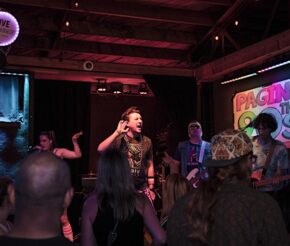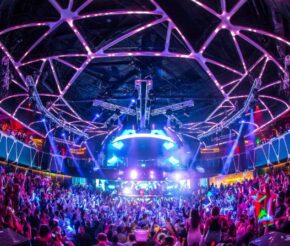- Advertise
-
Subscribe
The post-COVID Effect on the Nightlife Sector

A report commissioned by the Night Time Industries Association (NTIA) contained some devastating news for the nightlife sector. Since 2019, an estimated 393,000 people within the nightlife industry have lost their jobs, with 86,000 of those being part of the nighttime cultural economy.
The NTIA report brings no good news
Just to be clear, the nighttime economy refers to sectors within the Out of Home Leisure Economy (OHLE). In other words, we are talking about the industry that caters to the evening consumer between the hours of 6 PM to 6 AM.
Specifically, the Night Time Cultural Economy (NTCE) refers less to venues providing food and drink, and more to those revolving around cultural and leisure activities, like clubs, concerts and party venues.
The primary aim of the NTIA study was to examine the particular economic contribution of NTCE to the UK economy.
The NTIA study found that the NTCE has lost proportionally. Even more than the other sector within the OHLE throughout the pandemic, estimating trade losses between March 2020 to June 2021 of £36 billion.
NTCE is a vital element of the UK economy, contributing to 1.64% of GDP – equalling £46 billion – in 2019 alone.
The COVID effect
As a result, the losses over the pandemic period could have ruinous effects on the larger economy.
The NTIA report worries that the cultural industry jobs lost to the pandemic cannot be salvageable in the same way as jobs belonging to other sectors.
It’s about time the nighttime cultural economy was recognized as a vital player in the UK economy. Not to mention it has a pivotal and culturally-representative element of British life.
Losses over the pandemic period could have ruinous effects on the larger economy
Amy Lamé, London’s Night Czar, describes the economic, social and cultural value of nightlife to the city of London, saying:
“London’s cultural life after 6 PM is something that defines the character and identity of our city like no other sector. A city that is as alive, vibrant and diverse at night as it is during the day attracts tourism, creates jobs and helps drive local growth.”
Amy Lamé, London’s Night Czar

Nightlife as part of the culture
Not only does the nightlife industry bring an influx of tourists year-round, it also keeps the city economically alive by creating job opportunities for locals.
London wouldn’t be the city it is today without its nightlife entertainment scene.
Peter Marks, CEO of Rekom UK, a private company with an estate of 46 nightclubs, reiterates the importance of nightlife cultural venues and businesses to both the general public as well as the government.
“Given the spectacular return of guests to our clubs, at record levels for a summer, it just goes to show how important we are in the minds of young adults and how much we have been missed.”
Not only does the nightlife industry bring an influx of tourists year round, but it also keeps the city alive by creating job opportunities for locals
Many hope that this report will shine a light on the nightlife’s importance and how essential it is to make sure it gets back on its feet.
“We employ over 2000 young adults, many of which will be their first jobs. Economically we are also significant. As we employ large numbers of people, coupled with alcohol tax we are extremely profitable for the treasury too, with 33p in the pound going to government.”
– Peter Marks, CEO Rekom UK
A loss for both the business and the people
Cold hard figures aside, it’s crucial to remember that beyond the numbers exist real individuals who have been hit hard by the sector’s losses.
Looking at the NTIA report, it is obvious that any jobs and businesses that depend on this sector are at stake. For the UK economy to recover from the impact of COVID, the nighttime sector has to be supported in the process.

Sacha Lord, NTE Advisor for Greater Manchester and Co-Founder of The Warehouse Project and Parklife, stresses that the industry is in a dire position. And in order to recover it to its pre-pandemic status, acknowledgement for its contribution to the UK economy is vital.
“The sector is balancing precariously on the edge, already distressed from the economic uncertainty of the past 15 years and the Brexit-inspired visa issues of late. The Covid-19 pandemic only exacerbated these cracks, and as a result we have seen many of our favourite venues unable to survive.”
Sacha Lord, NTE Advisor for Greater Manchester, Co-Founder of The Warehouse Project and Parklife
It’s not too late to save the nighttime cultural entertainment industry, but many fear that if it continues to be neglected by the UK government and doesn’t receive the concessions it deserves, the damage could be too severe for the sector to have a comeback. Then the damage could be too jarring for the sector to recover fully.





